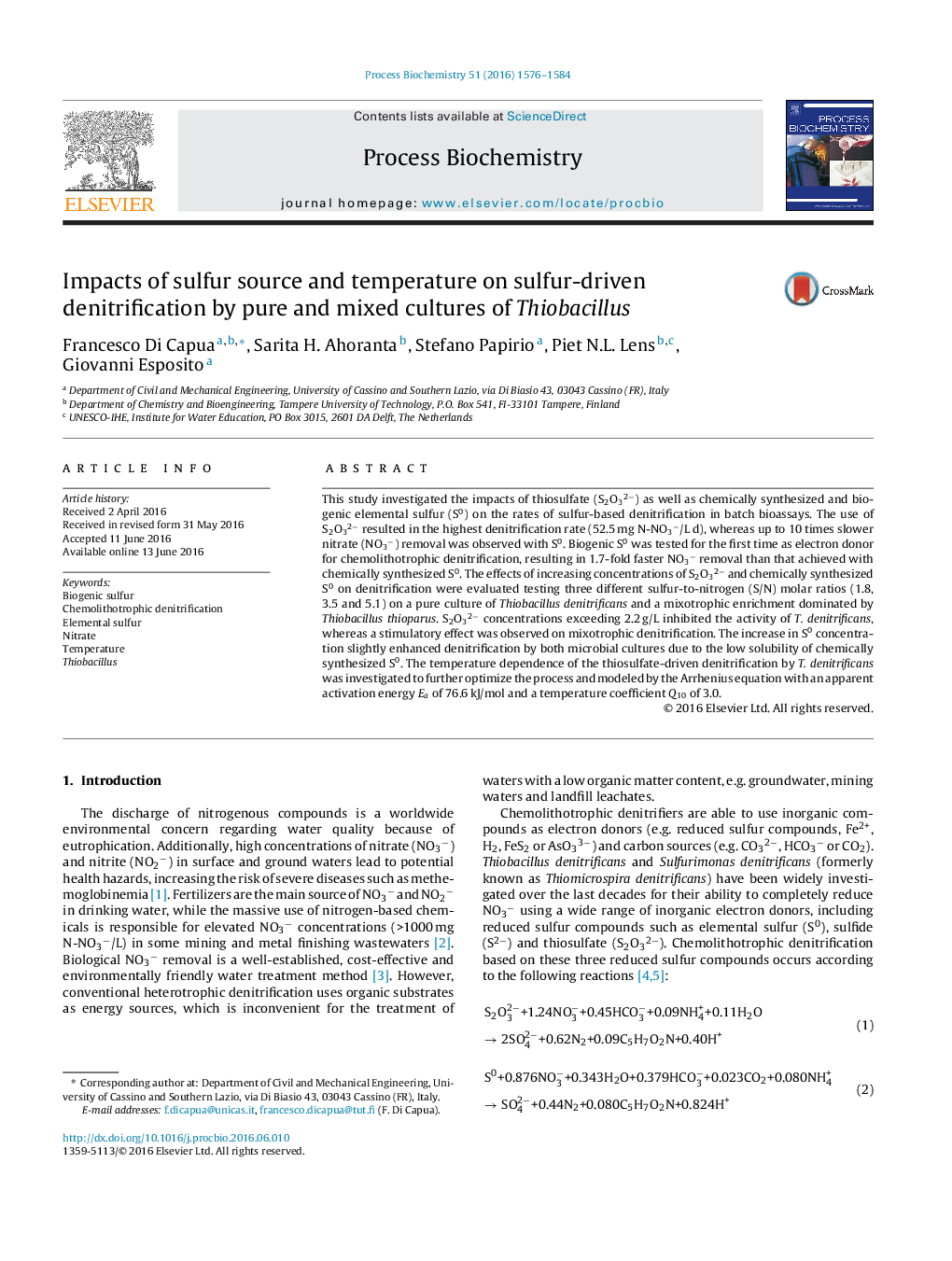| Article ID | Journal | Published Year | Pages | File Type |
|---|---|---|---|---|
| 6453046 | Process Biochemistry | 2016 | 9 Pages |
â¢Four sulfur compounds were compared as energy sources for denitrification.â¢Biogenic S0 was a more efficient energy source than chemically synthesized S0.â¢S-S2O32â concentrations >2.2 g/L inhibited denitrification by T. denitrificans.â¢Mixotrophic denitrification was stimulated by S-S2O32â concentrations >2.2 g/L.â¢Arrhenius modeling resulted in an Ea of 76.6 kJ/mol in the range of 6-30 °C.
This study investigated the impacts of thiosulfate (S2O32â) as well as chemically synthesized and biogenic elemental sulfur (S0) on the rates of sulfur-based denitrification in batch bioassays. The use of S2O32â resulted in the highest denitrification rate (52.5Â mg N-NO3â/L d), whereas up to 10 times slower nitrate (NO3â) removal was observed with S0. Biogenic S0 was tested for the first time as electron donor for chemolithotrophic denitrification, resulting in 1.7-fold faster NO3â removal than that achieved with chemically synthesized S0. The effects of increasing concentrations of S2O32â and chemically synthesized S0 on denitrification were evaluated testing three different sulfur-to-nitrogen (S/N) molar ratios (1.8, 3.5 and 5.1) on a pure culture of Thiobacillus denitrificans and a mixotrophic enrichment dominated by Thiobacillus thioparus. S2O32â concentrations exceeding 2.2Â g/L inhibited the activity of T. denitrificans, whereas a stimulatory effect was observed on mixotrophic denitrification. The increase in S0 concentration slightly enhanced denitrification by both microbial cultures due to the low solubility of chemically synthesized S0. The temperature dependence of the thiosulfate-driven denitrification by T. denitrificans was investigated to further optimize the process and modeled by the Arrhenius equation with an apparent activation energy Ea of 76.6Â kJ/mol and a temperature coefficient Q10 of 3.0.
Graphical abstractDownload high-res image (133KB)Download full-size image
